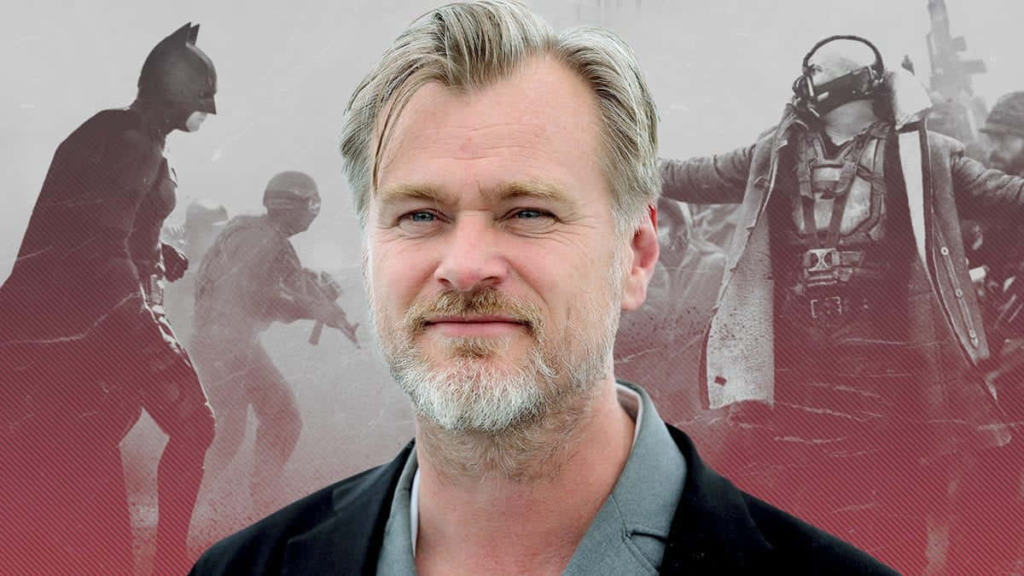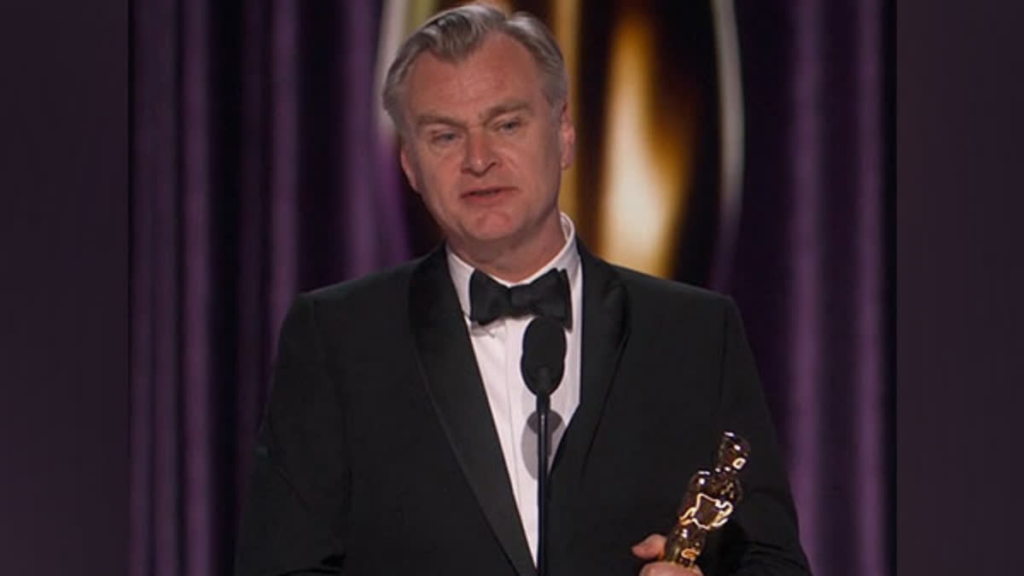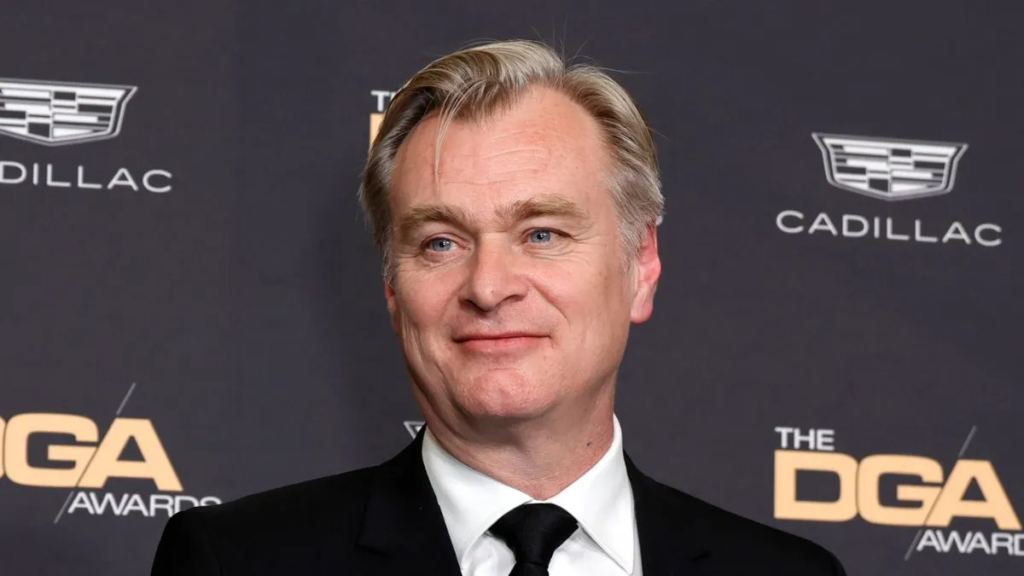Christopher Nolan, one of the most influential filmmakers of the 21st century, has captivated audiences with his innovative storytelling, complex narratives, and visually stunning films. Known for his ability to blend intellectual depth with blockbuster appeal, Nolan has carved out a unique space in the world of cinema. From his early independent projects to his groundbreaking Hollywood productions, Nolan’s journey is a testament to creativity, ambition, and mastery of the craft. This article explores the life, career, and legacy of Christopher Nolan, delving into the milestones and themes that define his work.
Early Life and Inspirations
Christopher Edward Nolan was born on July 30, 1970, in London, England. Raised in a creative household, Nolan’s father, Brendan, was an advertising executive, and his mother, Christina, was a flight attendant and English teacher. Nolan’s dual citizenship in the United Kingdom and the United States allowed him to experience diverse cultures, which would later influence his filmmaking.
Nolan’s fascination with cinema began at an early age. Inspired by classics like 2001: A Space Odyssey and Star Wars, he started experimenting with filmmaking using his father’s Super 8 camera. These early experiences ignited his passion for storytelling and visual artistry, setting the stage for his future career.
The Independent Beginnings: Following and Memento

Nolan’s journey into professional filmmaking began with his debut feature, Following (1998). Made on a shoestring budget, the film showcased Nolan’s talent for crafting intricate narratives and exploring themes of identity and morality. The story, told in a non-linear fashion, follows a young writer who becomes entangled in the world of a mysterious thief. Following received critical acclaim and established Nolan as a promising new voice in cinema.
Nolan’s breakthrough came with Memento (2000), a psychological thriller that revolutionized storytelling in film. The movie, which unfolds in reverse chronological order, follows Leonard Shelby, a man suffering from short-term memory loss, as he seeks to avenge his wife’s murder. Memento earned Nolan widespread recognition, including Academy Award nominations for Best Original Screenplay and Best Editing. The film’s innovative structure and exploration of memory and perception became hallmarks of Nolan’s style.
Hollywood Success: Insomnia and The Prestige
Nolan’s transition to Hollywood began with Insomnia (2002), a remake of a Norwegian thriller. Starring Al Pacino, Robin Williams, and Hilary Swank, the film explores themes of guilt and morality against the backdrop of a remote Alaskan town. Insomnia demonstrated Nolan’s ability to work with high-profile actors and deliver compelling narratives, solidifying his reputation in the industry.
In 2006, Nolan directed The Prestige, a tale of rivalry and obsession between two magicians, played by Hugh Jackman and Christian Bale. The film’s intricate plot, stunning visuals, and exploration of sacrifice and ambition earned critical acclaim. The Prestige showcased Nolan’s ability to blend intellectual depth with emotional resonance, further establishing him as a master storyteller.
The Dark Knight Trilogy: Redefining Superhero Cinema

Christopher Nolan’s impact on cinema reached new heights with The Dark Knight Trilogy. Beginning with Batman Begins (2005), Nolan reimagined the iconic superhero, focusing on Bruce Wayne’s psychological journey and the realism of Gotham City. The film’s success paved the way for The Dark Knight (2008), widely regarded as one of the greatest superhero films of all time.
The Dark Knight introduced Heath Ledger’s unforgettable portrayal of the Joker, earning him a posthumous Academy Award for Best Supporting Actor. The film’s exploration of chaos, morality, and heroism resonated with audiences and critics alike, grossing over $1 billion worldwide.
The trilogy concluded with The Dark Knight Rises (2012), which delves into themes of redemption and legacy. Nolan’s ability to balance character development, action, and philosophical depth redefined the superhero genre, influencing countless filmmakers and franchises.
Pushing Boundaries: Inception and Interstellar
Nolan continued to push the boundaries of storytelling with Inception (2010), a mind-bending heist film set within the realm of dreams. Starring Leonardo DiCaprio, the film explores themes of reality, memory, and the subconscious. Inception received critical acclaim and won four Academy Awards, including Best Cinematography and Best Visual Effects. Its iconic “spinning top” ending remains one of the most debated moments in cinema.
In 2014, Nolan directed Interstellar, a sci-fi epic that explores humanity’s quest for survival and the bonds of love across space and time. Starring Matthew McConaughey and Anne Hathaway, the film combines scientific rigor with emotional depth, earning praise for its ambitious storytelling and stunning visuals. Interstellar solidified Nolan’s reputation as a filmmaker unafraid to tackle complex themes and grand narratives.
Experimentation and Innovation: Dunkirk and Tenet

Nolan’s versatility as a filmmaker is evident in Dunkirk (2017), a World War II drama that depicts the evacuation of Allied soldiers from Dunkirk, France. The film employs a non-linear narrative structure, interweaving three timelines to create a visceral and immersive experience. Dunkirk received critical acclaim and won three Academy Awards, including Best Editing and Best Sound Mixing.
In 2020, Nolan released Tenet, a sci-fi thriller that explores time inversion and its implications. Starring John David Washington and Robert Pattinson, the film challenges conventional storytelling with its intricate plot and groundbreaking visual effects. While Tenet polarized audiences, it showcased Nolan’s commitment to innovation and his ability to provoke thought and discussion.
Themes and Style
Christopher Nolan’s films are characterized by recurring themes such as time, memory, identity, and morality. His storytelling often involves non-linear narratives, complex characters, and philosophical depth. Nolan’s use of practical effects, IMAX cameras, and meticulous attention to detail creates a sense of realism and immersion that sets his work apart.
Nolan’s collaborations with composer Hans Zimmer have resulted in iconic scores that enhance the emotional impact of his films. From the haunting melodies of Interstellar to the pulsating rhythms of Dunkirk, Zimmer’s music is integral to Nolan’s cinematic vision.
Legacy and Influence
Christopher Nolan’s impact on cinema is profound. His ability to blend intellectual depth with blockbuster appeal has redefined the possibilities of mainstream filmmaking. Nolan’s dedication to storytelling and innovation has inspired a generation of filmmakers and captivated audiences worldwide.
Beyond his films, Nolan is an advocate for preserving the theatrical experience. He has championed the use of film over digital formats and emphasized the importance of cinemas in showcasing the art of filmmaking.
Conclusion: A Visionary Filmmaker
Christopher Nolan’s journey from an aspiring filmmaker with a Super 8 camera to one of the most influential directors in the world is a story of passion, creativity, and perseverance. His ability to craft compelling narratives, explore complex themes, and push the boundaries of cinema has earned him a place among the greats.
As Nolan continues to create and innovate, his legacy as a visionary filmmaker will undoubtedly endure, inspiring audiences and filmmakers for generations to come.
Also Read: Amanda Bearse: From Sitcom Star to Trailblazing Director






